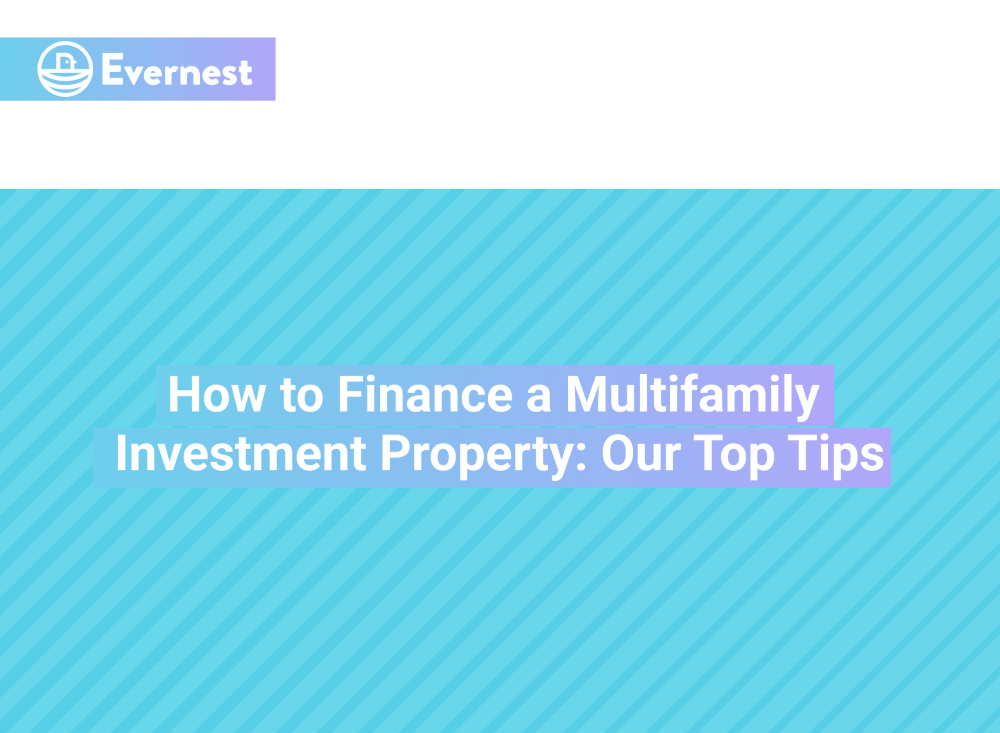Multifamily properties can be great investments, as they offer tons of benefits for investors. You can enjoy a steady cash flow, the opportunity to increase your portfolio overnight, and relatively low risks. Not to mention, multifamily properties can skyrocket in value, as long as you put in the work. Multifamily properties can also be fairly easy investments for first-timers. They have a low barrier to entry, low risk, and incredible scalability. So, there’s a lot of growth potential. But a lot of investors, especially first-time investors, get caught up in the financing process. Seasoned investors may close all deals with cash, which is often out-of-reach for many newcomers. Knowing the financing options you have will help you choose the right path for you. In this post, we’ll cover a few different options for financing a multifamily investment. Note that you should always speak with a financial advisor before making any big decisions - but this guide can be a jumping-off point. That being said, let’s dive in.
What is a Multifamily Investment Property?
In investment terms, a multifamily property is a complex or building that contains numerous residential units. The units don't have to be the same size, though they can be. The units typically have their own bathrooms and kitchens, making them entirely self-sufficient. Of course, a high-rise apartment building is a multifamily property. A duplex or triplex is, too, though. Experts typically choose properties with up to ten or twelve units when dabbling in small multifamily. Beyond that, you begin to enter the realm of commercial developers.
How To Finance A Multifamily Investment Property?
When financing multifamily properties, you have quite a few options. Let’s take a look at a few of the more popular:
Conventional Mortgage Loans
Conventional mortgage loans are provided by credit unions, banks, and other mortgage lenders. Depending on the market, conventional mortgage loans can typically cover a multifamily property of two to four units. If you’re interested in more than four units, or are located in a more expensive market, you may need to look into a jumbo loan. Getting a conventional loan for a multifamily property looks quite a bit like getting one for a single-family property. You’ll need good credit, proof of income, cash reserves, and more. Your mortgage loan will then have either a variable or fixed interest rate. Interest rates are typically competitive with other types of financing options for multifamily properties.
VA Loans
The United States VA loans is one of the strongest tools in the homebuying toolbox. This is a U.S. military-associated benefit that people who served can use to finance properties for up to 4 units. That means you’re not restricted to single-family homes. Keep in mind that VA loans aren’t meant for property investments, so they’ll only be applicable if the applicant plans to live on-site. VA loans are also only available to veterans, those who are currently serving in the military, or their spouses. But VA loans offer some of the most favorable financing conditions. That’s because you could potentially receive financing for up to 100% of the home’s price, with absolutely no down payment and no private mortgage insurance. You can also lump the funding fee (1.25%-3.3%) into the mortgage, as opposed to paying at close. Some borrowers might even qualify to have this cost waived.
FHA Loans
FHA loans are government-issued loans that can be used to finance properties up to 4 units, one condition being you have to live in one of them. This is a popular option for first-time buyers, thanks to its low fixed price, long terms, and incredibly high leverage rates of 85% to 90%. Rules also stipulate that rental agreements must be long-term (no Airbnb-ing). If you’re more interested in short-term rentals, you’d need to refinance your FHA loan in to a conventional one.
Fannie Mae And Freddie Mac Loans
Also referred to as “agency loans,” Fannie Mae and Freddie Mac loans represent a remarkable amount of multifamily property mortgage shares. They generally have a high leverage level of around 75% to 80% with low-interest rates. Fannie Mae and Freddie Mac loans come in a variety of terms. These terms can be fixed-rate, interest-only, or hybrid rates. And they could be for 5 years, 7 years, or even 12 years. They provide terms up to 30 years. Investors aren’t just limited to buying their multifamily property with these loans, either. You could also use them when refinancing.
How to Finance a Multifamily Investment Property: Final Thoughts
Your objective as an investor is to drive returns higher. One key consideration in doing so includes finding the best way to finance your investment. And remember, you don’t have to go it alone. A multifamily partner you can trust, like Evernest, can offer personalized guidance and support. All you have to do is ask!


